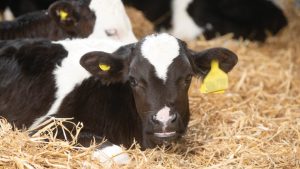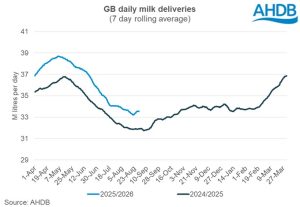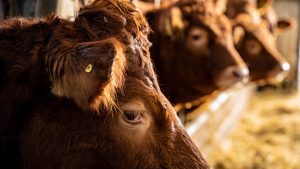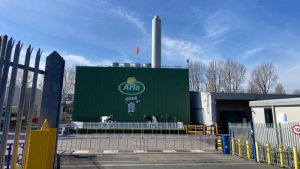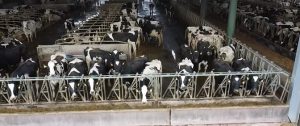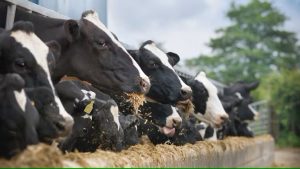
They have just launched a green scheme which pays farmers a premium for their milk if they reach certain environmental standards.
Farmers signed up for Arla’s new CARE label make a number of commitments, including giving cows access to grass for grazing as long as the weather allows.
They also get rewarded for environmental schemes including adopting renewable energy like solar and biogas and improving ecosystems and biodiversity.
I went to visit one Shropshire farmer to see how the scheme works.
James Thompson has a large dairy farm with over 1000 cows, near Shrewsbury. There is a modern rotary parlour, where cows slowly move round in a sort of milk merry-go-round.

On top of some of the larger outbuildings there are solar panels generating about 40% of the farm’s energy needs and surrounding us are signs of tree planting and biodiversity schemes.
James told me that as a family farm, when it comes to business they think really in terms of generations, a sort of 25-year cycle. Trees planted today may one day be harvested by his grandchildren, for example.
It is likely these are all things he would be doing anyway but because he now gets Arla’s premium, because of all these schemes, he can accelerate his plans and do even more.

For Arla, the hope is customers will look for the CARE label and want to pay a bit more knowing they are doing a little bit more for animal welfare and the environment.
The more that choose to do so the more the dairy co-operative, which has 2,100 dairy farmers in the UK, can expand the scheme.
Arla is even experimenting with using biogas created on farms from manure as a fuel for its delivery trucks.
Farming often finds itself targeted for its environmental impact and greenhouse emissions.
But for all the large-scale talk at COP27 in Egypt this week, the power to really change things often lies in the hands of consumers willing to do a bit of research and in the end to pay a little bit more.




